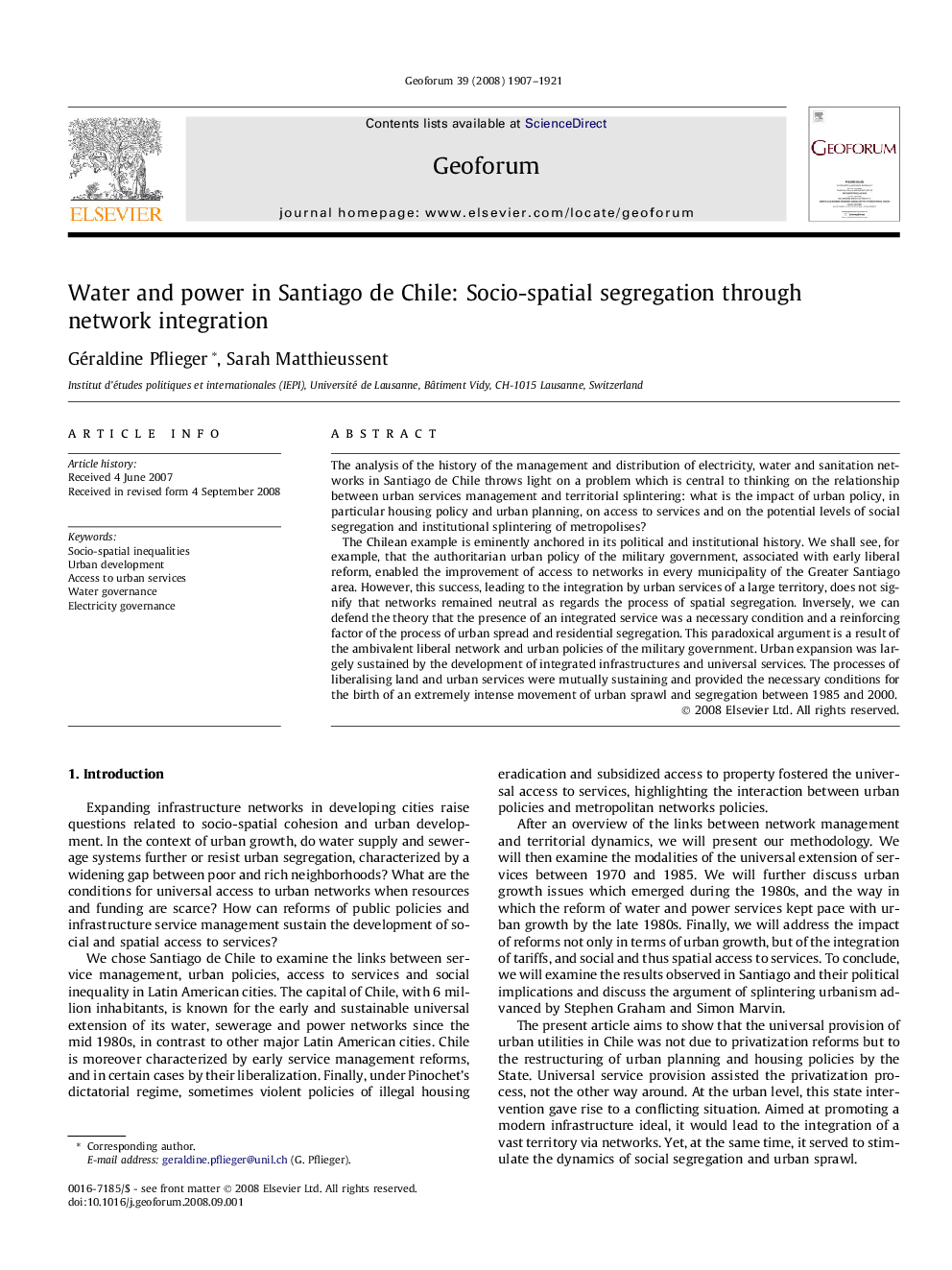| Article ID | Journal | Published Year | Pages | File Type |
|---|---|---|---|---|
| 5074843 | Geoforum | 2008 | 15 Pages |
Abstract
The Chilean example is eminently anchored in its political and institutional history. We shall see, for example, that the authoritarian urban policy of the military government, associated with early liberal reform, enabled the improvement of access to networks in every municipality of the Greater Santiago area. However, this success, leading to the integration by urban services of a large territory, does not signify that networks remained neutral as regards the process of spatial segregation. Inversely, we can defend the theory that the presence of an integrated service was a necessary condition and a reinforcing factor of the process of urban spread and residential segregation. This paradoxical argument is a result of the ambivalent liberal network and urban policies of the military government. Urban expansion was largely sustained by the development of integrated infrastructures and universal services. The processes of liberalising land and urban services were mutually sustaining and provided the necessary conditions for the birth of an extremely intense movement of urban sprawl and segregation between 1985 and 2000.
Keywords
Related Topics
Social Sciences and Humanities
Economics, Econometrics and Finance
Economics and Econometrics
Authors
Géraldine Pflieger, Sarah Matthieussent,
